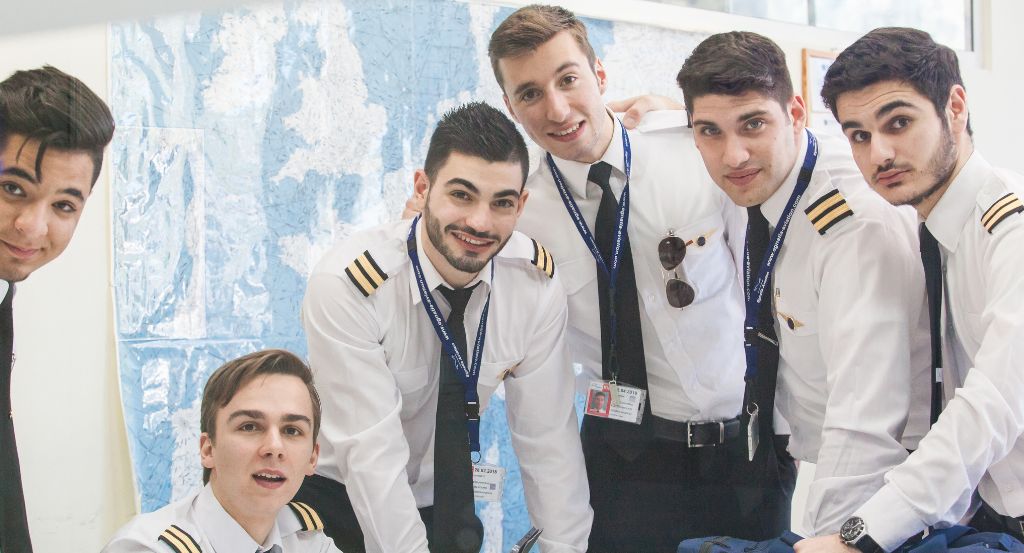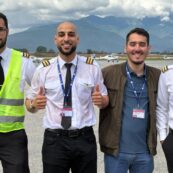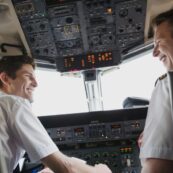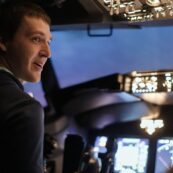Biohacking For Airline Pilots: Can Sleep, Nutrition, And Mindset Improve Performance?

The professional competency of an airline pilot has long rested on technical mastery, procedural discipline, and operational resilience.
However, modern aviation increasingly recognises that physiological readiness is an equally critical determinant of performance.
Sleep quality, nutritional balance, and psychological preparedness are no longer peripheral concerns; they are operational tools. Effective fatigue management, sustained hydration, and a cultivated cognitive focus can directly influence the accuracy of complex procedures and the timeliness of in-flight decision-making. Flight academies such as Egnatia Aviation have incorporated these principles into a holistic training approach, aligning technical instruction with evidence-based strategies for optimising mental and physical performance.
This position is strongly supported by global safety bodies. The International Civil Aviation Organization defines fatigue as a “physiological state of reduced mental or physical performance capability” arising from inadequate rest, extended wakefulness, circadian rhythm disruption, or cumulative workload—precisely the conditions cadets face in intense training blocks. The question is no longer if pilots should treat wellness as part of their skill set, but how they can integrate it into their training culture.
In this context, biohacking—applied through validated sleep, nutrition, and mindset practices—becomes not a lifestyle trend, but a structured enhancement to pilot training outcomes.
The Science Behind Mental Fatigue in the Cockpit
The impact of inadequate rest is equally well documented. Consolidated analyses, including those referenced in the Frontiers in Physiology review commissioned by EASA, equate the performance decline after 24 hours of wakefulness to that associated with a blood alcohol concentration of approximately 0.10%. Even moderate sleep restriction demonstrably impairs pattern recognition and situational awareness, both of which are critical for navigating complex airspace.
Nutritional status further influences cognitive capacity. A dehydration level of just 2% body mass can impair attention span, psychomotor speed, and short-term memory, according to research. Dietary composition is also a factor: a controlled trial in the International Journal of Aviation Psychology reported that pilots following high-protein, low-carbohydrate diets underperformed in flight tasks compared to those on balanced macronutrient regimens, underscoring the importance of steady glucose availability for optimal brain function.
Within its training framework, Egnatia Aviation explicitly addresses these physiological variables. The academy’s methodology integrates structured rest cycles, hydration strategies, and nutritional planning into cadet routines, recognising that technical proficiency must be supported by sustained mental clarity. The institution’s risk and decision-making guidance reinforces this perspective, demonstrating how cognitive fatigue directly undermines judgment and operational safety margins.
In sum, the cognitive demands of pilot training require a deliberate alignment of physical readiness, mental discipline, and technical skill. Evidence-based biohacking practices provide a structured pathway to achieving this alignment, and their integration into training programmes is rapidly becoming a professional necessity.
Biohacking Strategies for Airline Pilots
Sleep Hygiene: Signal And Repair
Rest and recovery operate predominantly in the realm of cognitive function and memory retention. Clinical neurological evidence indicates that both slow-wave and REM sleep are essential to the process of encoding newly learned motor skills. In fact, ICAO fatigue risk management resources highlight our need for regular, scheduled sleep patterns, avoidance of circadian disruption, and the provision of a good rest environment, regulated in terms of temperature and light.
Foods That Fuel Cognition
Cognitive function, the brain’s performance, is dependent on the delivery of a constant source of energy and a stable macronutrient supply, which prevents the glucose crashes that are closely associated with poor attention span. Research posits that mild dehydration has an enormous influence on psychomotor speed and memory function, and Aviation Psychology dietary trial cautions against very low-carbohydrate diets for complex flying tasks.
Cadets at Egnatia Aviation are encouraged to integrate nutritional planning into their daily schedule. This includes appropriate hydration before simulator sessions, avoiding heavy meals that may impair postprandial alertness, and prioritising nutrient-dense foods to sustain performance during extended ground school hours.
Mindset Tools: Visualisation And Mindfulness
Mental rehearsal, or “chair flying”, is a well-established performance technique. The role of deliberate mental practice enhances procedural recall and decision-making under stress. Similarly, mindfulness techniques—including breath control and structured attention exercises—are increasingly recognised for their capacity to reduce anxiety and enhance situational awareness in aviation contexts.
Egnatia Aviation incorporates these principles within its training framework, highlighting emotional readiness and confidence-building as essential training outcomes, while leveraging its environment to help minimise stress. These strategies are embedded not as optional extras, but as integral components of professional pilot development.
Biofeedback Tools in Modern Pilot Training
Cadets are adopting technology-driven solutions to monitor and improve their physiological state. Wearable devices—ranging from sleep trackers to heart rate variability monitors—provide actionable biofeedback. Military and civil operators are trialling similar tools for fatigue prediction, as evidenced by the Air Mobility Command pilot fatigue programme and the Merlin–Quikjet study.
Routine optimisation is another common strategy. Structured mornings—including hydration, light exercise, and cognitive warm-up through visualisation—precede both simulator and live flight sessions. This aligns with Egnatia Aviation’s airline pilot training approach, which embeds professional-grade preparation standards from the earliest stages.
Egnatia Aviation alumni consistently attribute line readiness to routines that combine technical precision with physiological control:
- Elina Skarpeta (Pilot, Olympic Air): “Egnatia equipped me with the fundamental skills and attitude required for airline operations. The standards in briefing, checklist discipline, and post-flight review built the consistency I rely on every day.”
- Abdullah Al-Fadhli (First Officer, Jazeera Airways): “High standards were matched with an environment that respected recovery. Balancing intensity with rest made it possible to show up focused and ready for each detail.
These testimonials echo the biohacking patterns observed in airline pilot training: structured routines, disciplined preparation, and environments that support resilience. The themes they emphasise—safety, foresight, and mental readiness—are at the heart of biohacking as integrated, evidence-based performance support.
Building Pilot Resilience Through Structured Wellness
The integration of wellness at Egnatia Aviation is holistic. The academy’s training philosophy centres on personal qualities, professional behaviour, and human performance, in addition to practical competencies. Training schemes include dedicated rest time, recovery modalities, and an environment primed for concentration and attention. This is a type of biohacking for aspiring airline pilots.
The academy’s risk management guidance reiterates the operational benefit of avoiding or minimising cognitive impairment from tiredness. Cadets manage early lessons in theory as well as flight preparation. Furthermore, they receive tips for airline pilots’ biohacking to be both operationally effective and systematic in terms of time management.
These acts align with both ICAO’s guidance on fatigue risk management for airlines and EASA’s scientific research on single-pilot or reduced-crew operations, which both identify rest, work design, and recovery as crucial factors in ensuring safety and productivity.
Through this training, Egnatia Aviation has embedded the well-being of newly graduated pilots with the requisite resilience inherent in the operation of commercial air transport, not just in terms of regulation validity or operational competence, but personal invulnerability.
Integrating Biohacking into Airline Pilot Training
Applying biohacking to commercial pilot training is not an indulgence, nor a passing fancy. Rather, it is the scientific application of proven methodology, such as optimal sleep practices, balanced nutrition, psychological performance training, and science-based quantitative self-monitoring to improve pilot readiness and performance.
For cadets, including these techniques in their preparation for working life, leads to long-term professional lifestyle habits. At Egnatia Aviation, inclusion is not just recommended; it is an intrinsic component of pilot training, where technique is complemented by mental and physical preparation, enabling them to work safely even in the most challenging environments.




